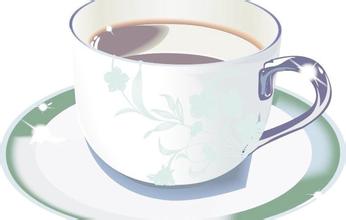Introduction to the characteristics of the manor producing area of Indonesian civet boutique coffee beans imported to Gansu
Although civet coffee makes glutton's lips and teeth fragrant, a recent BBC survey pointed out that some of the civets that appear on the market are advertised as "wild civets," but in fact it is Indonesian operators who keep civets in lattice cages, which is suspected of animal abuse.
Teguh Pribadi, founder of the Indonesian civet coffee association, insists that the mislabelled Indonesian civet coffee from wild civets is not common and may be an isolated case.
Lin Yijun, who once kept civets in captivity, believes that farmers and civets are symbiotic with each other, and civets are their source of income. If they abuse money-making tools and civets have poor health, the quality of coffee beans produced will certainly be poor, and farmers' income will be affected.
She said that captive farming makes it convenient for farmers to harvest coffee beans regularly, and most of the captive grounds are natural spaces where civets can move freely, while coffee beans excreted by wild civets often take time to find, and when farmers find them, the coffee beans have been overfermented and the quality is not good.
In addition, due to the scarcity and high price of civet coffee, there is news that "fakes are full" from time to time. Indonesian media recently reported that there is a cat similar to a civet in Indonesia, called "Musang" in Indonesia. Because it is cheaper and eats more than civets, it is often bought and fed by coffee makers, and then mixed with discharged coffee beans as civet coffee to sell.
Lin Yijun called on consumers to look clearly at the origin, ingredients and other matters when buying civet coffee. If there is only the bitter taste of ordinary coffee, but not the mellow and sweet taste of musk cat coffee, that is, the "fake civet coffee" bought with fish eyes mixed with pearls was once in a tasting meeting, and many celebrities carefully tasted every fragrance of Luwak coffee without being told the truth. And try to use gorgeous words to describe their sensory reactions. However, when people know the origin of this drink, they feel stomach discomfort at the same time. The sales staff of Muscat Coffee suggested that if you want to use this kind of coffee to entertain guests, either never tell him the truth, or tell him the origin of the coffee in advance and let him decide whether to drink it or not, lest he overreact to such a very different view of taste. Coffee experts mean that most Luwak coffee is made from robusta beans at low elevations. This shows that civets prefer robusta beans to Arabica beans at high altitudes. Indonesian coffee itself has the taste of earth and traditional Chinese medicine, and its consistency is among the highest in all continents, but Luwak coffee has a better taste and consistency, especially with a consistency almost close to syrup, and its flavor is very special (if it can be described by fragrance). The coffee made from the real civet coffee will emit a fragrance like honey and chocolate, and it will have a sweet, smooth and rich taste without adding sugar and cream, while the texture of the original water has been fully covered by the round and rich texture of the coffee, so the tip of the tongue can hardly feel the quality of the water at the beginning of the mouth. Not bitter, not sour, not astringent, but a little more milk flavor, and after entering the throat without scraping the stomach will not cause stomach discomfort. Even if it is cold, the taste is still mellow. After tasting it, the cup still has a sweet smell of milk. It is a coffee with rich texture and depth, and it is absolutely unique. But if you don't like the taste of Indonesian coffee in the first place, then to be sure, you will hate Luwak coffee even more. But if, on the contrary, you like the fishy smell of Indonesian aged beans or Indian-style soiled beans, you may fall in love with the similar flavor of Luwak coffee, which is said to have tasted this kind of coffee, but its taste has gone to two extremes. One describes the coffee as "the best in the world". The taste is so unusual that it is difficult to describe in words and words: "it is a little fishy, slightly choking and visceral, and it stays in your mouth for a long time until the last drop." On the other hand, the opposite is true: "it's hard to swallow, it's a complete gimmick, and it's not worth paying for smelly coffee."

Important Notice :
前街咖啡 FrontStreet Coffee has moved to new addredd:
FrontStreet Coffee Address: 315,Donghua East Road,GuangZhou
Tel:020 38364473
- Prev

Introduction to the characteristics and varieties of the top boutique coffee Jamaica Blue Mountain Coffee Flavor and taste Manor
(Portland) and St. Thomas (StThomas) producing areas. In eight years, Jamaica exported more than 375 tons of pure coffee. In 1932, coffee production reached its peak and more than 15000 tons of coffee was harvested. But by 1948, the quality of coffee had declined and Canadian buyers refused to renew their contracts, so the Jamaican government set up a coffee industry committee to save top coffee.
- Next

Delicious, light Peruvian organic coffee flavor taste manor characteristics of Peruvian boutique coffee
The best coffee names in Venezuela are: Montebello in San Cristobal, Miramar in Rubio, Granija in Timothe, and Ala Granija in Santa Ana, Tacira. Other high-quality products include: Mara
Related
- Detailed explanation of Jadeite planting Land in Panamanian Jadeite Manor introduction to the grading system of Jadeite competitive bidding, Red bid, Green bid and Rose Summer
- Story of Coffee planting in Brenka region of Costa Rica Stonehenge Manor anaerobic heavy honey treatment of flavor mouth
- What's on the barrel of Blue Mountain Coffee beans?
- Can American coffee also pull flowers? How to use hot American style to pull out a good-looking pattern?
- Can you make a cold extract with coffee beans? What is the right proportion for cold-extracted coffee formula?
- Indonesian PWN Gold Mandrine Coffee Origin Features Flavor How to Chong? Mandolin coffee is American.
- A brief introduction to the flavor characteristics of Brazilian yellow bourbon coffee beans
- What is the effect of different water quality on the flavor of cold-extracted coffee? What kind of water is best for brewing coffee?
- Why do you think of Rose Summer whenever you mention Panamanian coffee?
- Introduction to the characteristics of authentic blue mountain coffee bean producing areas? What is the CIB Coffee Authority in Jamaica?

